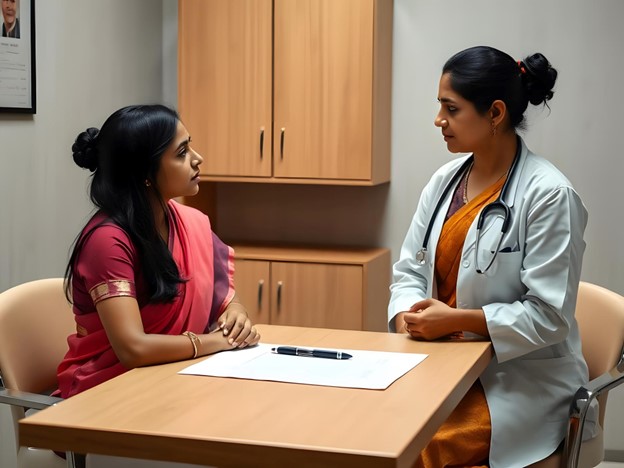
Endometriosis is a health condition affecting many women, and it can have a big impact on daily life. It can cause pain and other issues that make it tough to go about everyday tasks. Finding a doctor who understands this condition is crucial in managing the symptoms. The right doctor can help you find relief and make living with endometriosis easier. Navigating endometriosis healthcare guidance should empower you to take control of your health journey. Choosing the right doctor is your first step in managing and understanding endometriosis in a supportive way.
Assessing Expertise and Specialization in Endometriosis Care
When dealing with endometriosis, it’s important to choose a doctor who knows a lot about this condition. Doctors who have special training and experience in treating endometriosis are better equipped to help you. Generally, there are different types of medical professionals involved in the treatment of endometriosis:
- Primary Care Physicians: They provide basic care and can refer you to specialists.
- Gynecologists: They have more expertise in women’s health and can offer more targeted treatments.
- Endometriosis Specialists: They focus specifically on endometriosis and have the most specialized knowledge.
To choose the right doctor, check their credentials, surgical skills, and continued education. It’s reassuring if the doctor has attended extra training or courses in endometriosis. Plus, it’s helpful if they collaborate with a team that includes nutritionists or physical therapists. This multidisciplinary approach ensures a comprehensive care plan that might include natural ways to get rid of endometriosis and other methods tailored to your needs.
By choosing the right professionals, you put yourself on the path to better managing endometriosis and aligning with endometriosis healthcare guidance that suits your lifestyle and medical needs.
Communication and Trust: Foundation of Treatment Success
In any doctor-patient relationship, good communication is key, especially in treating endometriosis. It’s crucial to feel comfortable talking to your doctor and knowing that they’re really listening. Here’s how to assess a doctor’s communication style:
- Observe their listening skills. Do they look at you when you’re talking and ask questions to understand you better?
- Notice their approachability. Are they easy to talk to and willing to answer your questions?
- Their response time matters. Are they quick to respond to queries or concerns, whether in person or through calls and emails?
These aspects are crucial in establishing trust and ensuring you’re part of your treatment decisions. You should be able to discuss freely about symptoms and endometriosis treatment options without feeling rushed or ignored.
Societal norms can complicate this, especially in communities where talking openly about health isn’t common. In regions like India, it’s vital to have a doctor who encourages open conversations. A supportive doctor can help break these barriers, ensuring you feel confident about your treatment plan.
Remember to ask yourself these questions to gauge a doctor’s fit:
- Do they take time to explain things clearly?
- Are they open to discussing different treatment strategies, like surgery versus natural ways to get rid of endometriosis?
- Do they seem genuinely invested in improving your health and quality of life?
Feeling heard and involved is fundamental in your endometriosis health journey. It’s not just about finding the best treatments, but having a smooth, supportive, and understood process throughout.
Strategic Approaches and Treatment Variability
When managing endometriosis, remember that each person is unique, and so is each treatment plan. Options range widely, including medical treatments, surgeries, and more natural ways to get rid of endometriosis. Here’s a look into each:
- Medical Management: This involves medication to control symptoms and possibly hormones to reduce pain.
- Surgery: When medications aren’t enough, surgery is an option. This involves removing the endometriosis tissue, which might improve symptoms significantly.
- Lifestyle Modifications: Incorporating a healthy lifestyle with endometriosis friendly exercise routines can play a role in reducing discomfort.
The best treatment choices make both short and long-term benefits possible, sometimes even addressing concerns like, “Does endometriosis make you infertile?” or “Does having endometriosis make you infertile?” A comprehensive plan may include evaluating surgical methods and endometriosis surgery recovery plans, ensuring that you have care and support post-operation.
It’s okay to ask for a second opinion before settling on a strategy. Work with your doctor to discuss each treatment option, and don’t hesitate to bring up questions about fertility or pain management. Here are some areas to cover:
- Discuss different surgeries: What are the risks, and how long will recovery take?
- Recovery expectations: What should you prepare for during endometriosis surgery recovery?
- Pain management and support: What endometriosis treatment options are available for managing discomfort?
Endometriosis management is about collaboration between you and your healthcare provider. Ongoing dialogue can help you adjust your care plan as needed and explore new methods, whether incorporating endometriosis friendly exercise routines into your daily life or trying alternative therapies.
Finally, remember, the goal is not only to tackle current symptoms but also to enhance your quality of life and address any fertility concerns through careful, considerate planning. With the right team and a tailored plan, you can navigate your endometriosis treatment journey with confidence and clarity.
Navigating through endometriosis healthcare guidance isn’t just about finding the right doctor; it’s about building a relationship based on trust, communication, and shared decision-making. With informed choices and supportive professionals, managing endometriosis becomes a more empowering experience.
